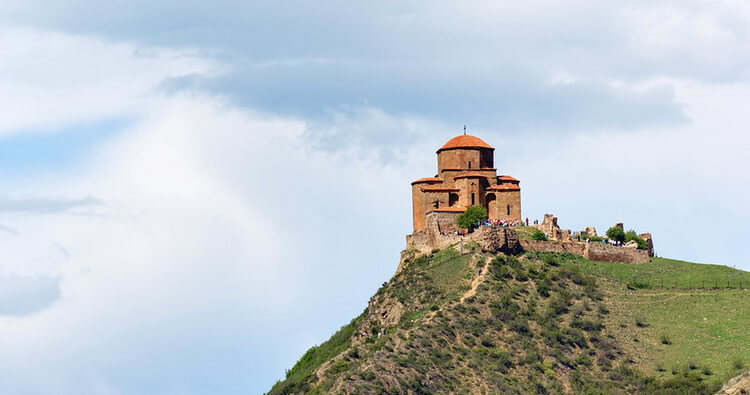Jvari Monastery UNESCO site set for conservation work with US ambassador fund support

A view of the Jvari Monastery, perched above hilltop opposite to the historical capital Mtskheta. Photo: Alexxx Malev on Flickr.
The deteriorating facade of the iconic 6th century Jvari Monastery, which stands perched atop a hill outside the ancient Georgian capital of Mtskheta, will undergo conservation and reinforcement work supported by the Ambassador’s Fund for Cultural Preservation at the United States Embassy in Tbilisi.
The embassy revealed on Wednesday it had designated a budget of $506,000 to support the effort that has been recognised as critically important for preserving the UNESCO World Heritage Site monument.
Based on a project prepared by the National Research Centre for Georgian Art History & Heritage Preservation, the work on the stones of the monastery facade will aim to protect it against the damage it has endured due to wind, atmospheric precipitation and biological microorganisms, the embassy release said.
The announcement said the condition of the site was grave and still worsening, and revealed the AFCP had approved the financial support for the conservation work in response to the emergency and based on the Georgian centre's project.
The latter has been ongoing since 2019, with a previous AFCP support overseeing a $100,000 budget for the first stage. The phase involved a multidisciplinary study of the building and preparation of the project for conservation. The work involved international experts, with the embassy noting a major portion of the work as completed.
The conservation effort envisioned in the latest phase is expected to provide stability and integrity of the stone construction and ensure no conservation work is needed on the monument over the next two decades.
The Jvari Monastery is one of three monuments included in the UNESCO World Heritage Site entry entitled Historical Monuments of Mtskheta. The monastery overlooks the confluence of the rivers Mtkvari and Aragvi outside the historical city, around 20km north of capital Tbilisi.
 Tweet
Tweet  Share
Share